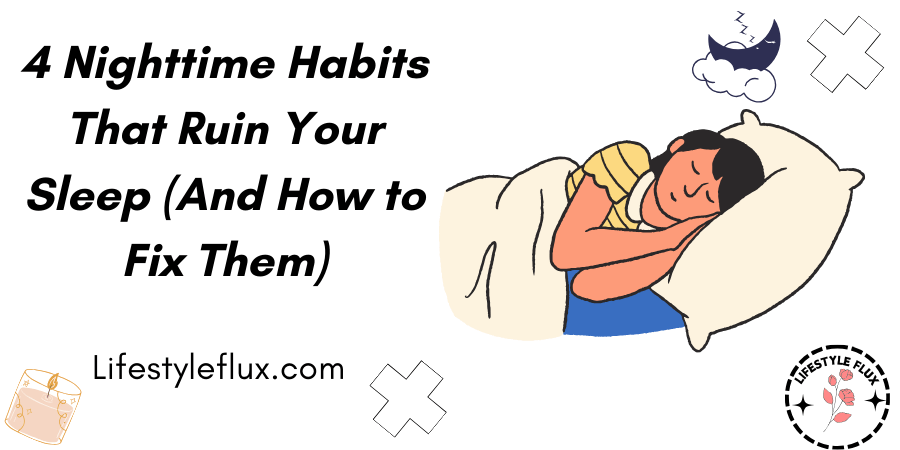We’ve all been there—lying in bed, staring at the ceiling, wondering why sleep feels so elusive. The truth is, that the habits we practice before bed can make or break our chances of a good night’s rest.
In 4 Nighttime Habits That Ruin Your Sleep (And How to Fix Them for Better Rest), we’ll dive into the common mistakes that sabotage your sleep and provide actionable solutions to help you reclaim those precious hours of rest.
From the glow of screens to the foods you eat, small changes can lead to big improvements in your sleep quality. Let’s explore how to turn your nighttime routine into a sleep-friendly ritual.
Table of Contents
1. Turn Off Electronics
Do you fall asleep with the TV on? Or you could browse social media before bed. Whether you’re looking at your phone, computer, or TV screen, your technology might be keeping you up.
A 2014 study looked at the sleep patterns of over 700 teenagers. Each one used some form of technology at night. The researchers tested participants based on the device they used before bed.
One group played video games, while another watched TV. They discovered that all electronics interfered with sleep in some way.
Playing video games delayed sleep onset, watching TV led to early rising, and even listening to music increased the risk of having nightmares. But every technology had one thing in common: they all made it harder to fall asleep. This isn’t the only study out there.
Another study from 2013 found the same results for computers, phones, and TVs. They determined that you could actually increase sleep duration by reducing nighttime technology use.
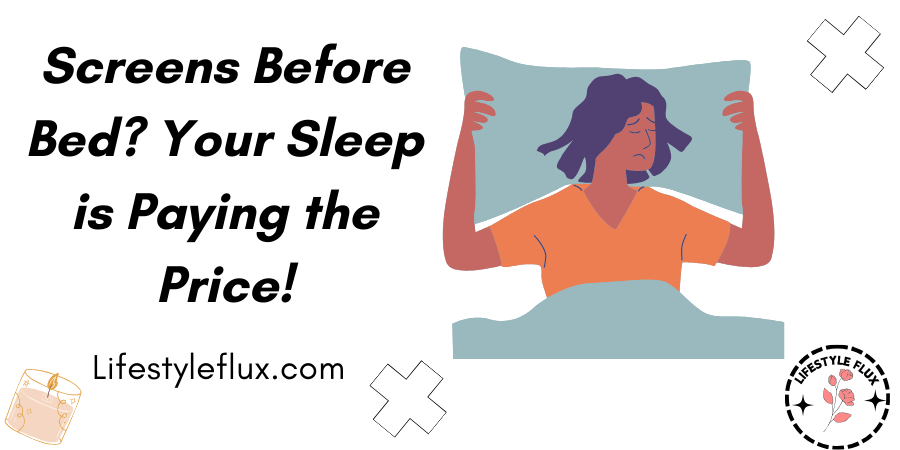
A third study added that turning off devices an hour earlier would significantly increase the length and depth of your sleep.
So why is technology so damaging? The first and most obvious problem is the screen itself.
Computers, phones, and TVs emit what’s called blue light, which restricts the production of a hormone called melatonin. Our bodies release melatonin into the bloodstream to reduce alertness.
In other words, it makes us tired. This process usually starts around 9:00 PM. The start time can fluctuate depending on when you go to bed but will continue for about 12 hours afterward.
Ideally, melatonin should enter your bloodstream a few hours before bed so you have time to relax and gradually drift off to sleep.
But when you’re using technology, nothing tells your body when to relax. It hasn’t had time to wind down because it wasn’t producing any of that sleep-inducing hormone.
Luckily, most modern computers let you adjust the kind of light on your screen, so you can use technology without stopping the production of melatonin.
However, that doesn’t mean you’re off the hook. Technology can still significantly worsen your sleep by re-engaging your brain.
Unlike meditating or reading a book, activities like playing video games force your mind to stay hyper-alert. They require you to be focused and vigilant, which is mentally stimulating.
When you try to sleep, your brain gets confused. It can’t jump from excitement to relaxation in the blink of an eye. Just like melatonin needs time to kick in, your brain needs time to switch gears.
By turning devices off at least an hour before bed, you give your brain the chance to unwind. Last but not least, technology can ruin your sleep by interrupting deep sleep.
Many people use their phones as alarms, leaving the volume on high to make sure they don’t oversleep. But you run the risk of miscellaneous texts, calls, and emails waking you up in the middle of the night.
On the surface, this doesn’t seem like much. So why does it matter if you occasionally wake up to check your phone? Well, those tiny interruptions make a huge difference in sleep quality.
Your body and brain need deep sleep to store memories and repair themselves. But you need hours of uninterrupted sleep to get there. If your phone is waking you up, it’s stealing time that your body and brain need to rejuvenate.
2. Eat Right
After decades of research, nutritionists still don’t agree on whether eating at night is good for you. Some say that eating at night accelerates weight gain, while others insist that it speeds up your metabolism.
It also doesn’t help that most real data on the subject is muddled by popular myths. A common myth is that food eaten at night is more likely to be stored as fat. However, a 1988 study showed that your average metabolic rate is the same at night as it is during the day.
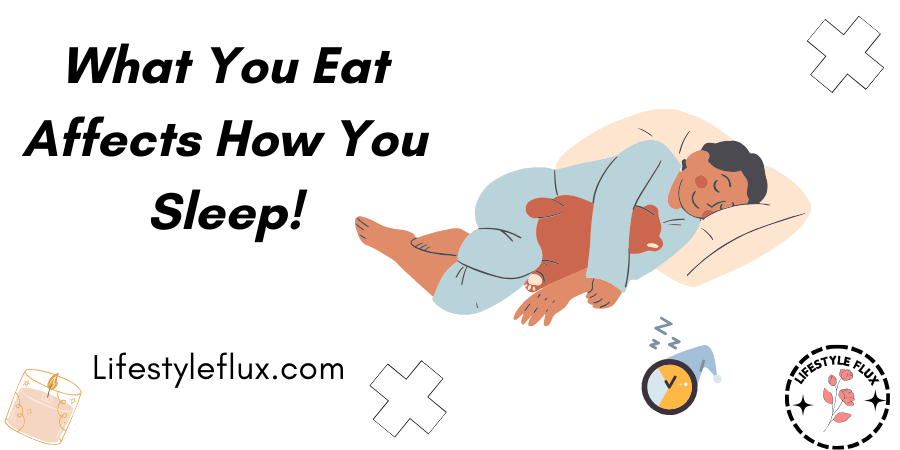
Another myth is that calories are worth more in the afternoon. In other words, 100 calories in the morning is worse than 100 in the evening. Yet, no study has ever proved this to be true.
Despite all this confusing evidence, there is one thing that is consistently true: eating certain foods before bed will stand in the way of your sleep.
When people think about eating at night, they focus primarily on when they’re eating.
If your timing is right, you can eat anything without experiencing negative side effects. You might have tried eating an early dinner to give your body time to digest or weighing your meals differently—eating a giant breakfast and lunch followed by a tiny dinner.
But will any of this really improve the quality of your sleep? The truth is that what you eat is far less important than what you eat. Foods containing sugar, caffeine, and cheese make it harder to fall asleep.
Similar to blue light, they keep your brain feeling alert, which is exactly what you don’t want before bed. Foods that are spicy or high in fat can cause restlessness due to slow digestion or heartburn.
Even healthy foods containing lots of water can create issues. If you eat a bunch of melon or celery, you’re almost guaranteed to wake up with a full bladder.
Instead of worrying about when you eat, focus on choosing the right foods. Bananas help you unwind by supplying your body with muscle relaxers like potassium and magnesium.
They also help your brain produce sleep-inducing melatonin. Foods like almonds and turkey are great sources of tryptophan, which stimulates the production of serotonin. Serotonin directly influences your sleep cycle. When you eat naturally relaxing foods, you’ll find yourself falling asleep in no time.
3. Stay Out of Bed
You can also fall asleep faster by reserving your bed exclusively for sleep. Many people eat, watch TV, or play games in bed. Do you ever use your bed as a workspace? While it’s certainly comfier, these habits may be interfering with your sleep.
Our brains naturally associate behaviors and places together. For example, when you go to work, your brain recognizes where you are and what that means.
You don’t feel like watching a movie or kicking your shoes off because that’s not what you do in that environment. But if you start binge-watching Netflix at work, your brain will start to associate the two together.
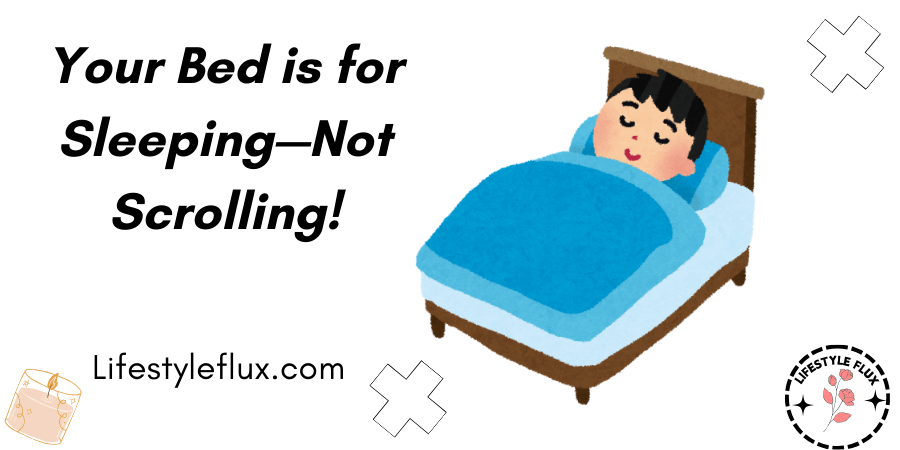
The same thing applies to your bed. When you work in bed, you’re creating new associations. Your bed isn’t just for sleep anymore, so your brain doesn’t know how to feel.
Should it be alert and productive, like you are at work? Or should it be relaxed, like you are at night? You usually end up with an unhelpful blend: you won’t feel as motivated to work, but you’ll also struggle to unwind.
You can avoid this behavioral confusion by making your bed a sanctuary of sleep. Try to keep all meals, technology, and work in another room. That way, when you finally climb into bed, your body will know exactly what to do.
4. Don’t Force It
No matter how much you want to, you can’t force yourself to fall asleep. When you have a test or interview in the morning, few things are more frustrating than lying awake and watching the minutes go by.
It’s dark, quiet, and comfortable, yet your mind is racing. You know you need to be well-rested, but you can’t stop tossing and turning. You can imagine how tired you’re going to be in the morning.
It starts to feel like your whole future depends on falling asleep right at this second. So why can’t you? Why do you get a sudden bout of insomnia every time something important happens?
Stress and sleep don’t mix. Whether it’s physical or mental, stress makes you feel stimulated and alert. It floods your body with hormones like cortisol, which supply you with an unwanted boost of energy.
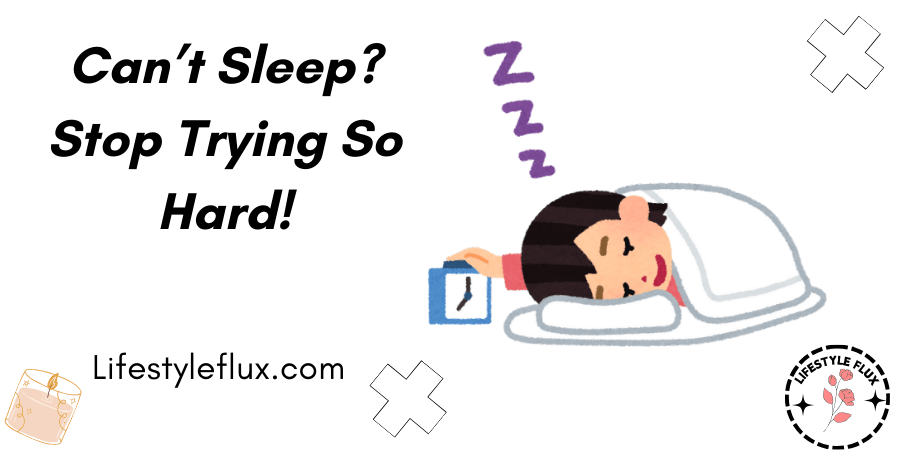
To make matters worse, stress builds on itself. Even the tiniest bit of self-doubt can escalate so much that it takes hours before you can finally relax.
This is especially common before bed because you’re out of distractions. Usually, you can work, read, or exercise to occupy your brain. But when you’re lying there in the dark, it can feel like you’re trapped with your own thoughts.
So what can you do about it? First, try to figure out what’s keeping you awake. Are you feeling unprepared? Are you worried about failing? Once you figure it out, concentrate on it.
Often, we lie there, trying our hardest to avoid the thing that’s keeping us up. Similar to how you should listen to a song to get it out of your head, addressing the problem will help you get past it.
Even if you’re not anxious, your goal should be to take the pressure off yourself. Try to accept that you’ll only sleep when your body is ready and not a second earlier. Instead of just lying there, relax by reading, meditating, or taking a bath.
When you’re ready, these soothing distractions will ease you into a deep and peaceful sleep.
Conclusion:
Improving your sleep doesn’t require a complete lifestyle overhaul—it’s about making mindful adjustments to your nighttime habits.
By turning off electronics, choosing sleep-friendly foods, reserving your bed for rest, and letting go of the pressure to fall asleep, you can create an environment that encourages deep, restorative sleep.
Remember, sleep is a natural process, and sometimes, the best thing you can do is give yourself the space to unwind. With these tips, you’re well on your way to waking up refreshed and ready to tackle the day. Sweet dreams!
Sources:
https://pubmed.ncbi.nlm.nih.gov/24394730
https://pubmed.ncbi.nlm.nih.gov/23295500
https://pubmed.ncbi.nlm.nih.gov/27633109
https://pubmed.ncbi.nlm.nih.gov/17284739
https://pubmed.ncbi.nlm.nih.gov/52766
https://pubmed.ncbi.nlm.nih.gov/18681982
https://www.healthline.com/nutrition/eating-before-bed#1
https://www.healthline.com/nutrition/ways-to-fall-asleep#section8
https://www.todaysdietitian.com/newarchives/111609p38.shtml
https://www.verywellmind.com/stress-and-your-memory-4158323
https://www.health.com/foods-that-help-you-sleep-8605374#123021

Founder and CEO of Lifestyleflux.com, I bring years of expertise in self-improvement, wellness, and personal development to help you lead a happier, more balanced life. Through practical insights, eBooks, and consultations, I share actionable strategies rooted in experience and a passion for empowering others to unlock their full potential.

